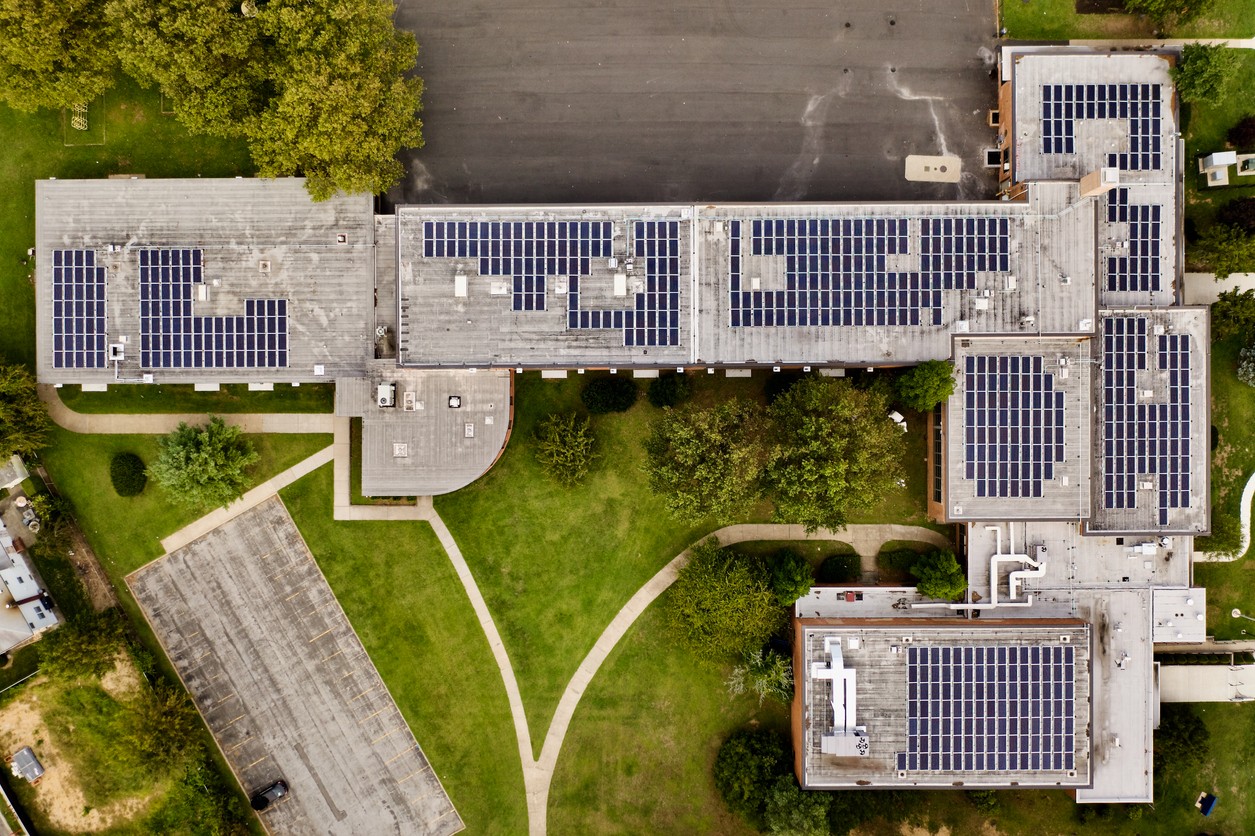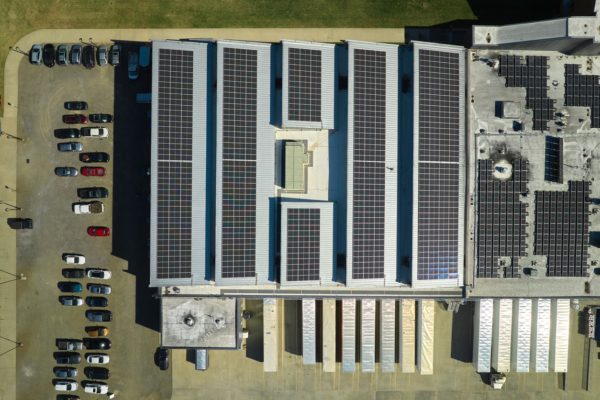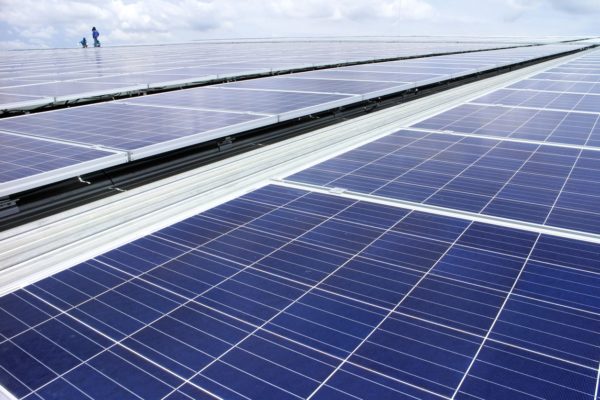
The increasing cost of power is one of the significant overhead expenses you will encounter as a business owner. You’ll face changes in electricity costs if you rely on the industrial power grid. The unpredictability of costs may affect many aspects of your organization, primarily how you handle the cash flow. You should lighten that burden and consider installing a solar panel to help your company.
Solar energy systems have gained popularity in America as an alternative energy source. You must have heard that many big firms, including Walmart and Intel, are switching to solar energy for their buildings.
You may not believe that solar power is affordable for a small or an average-sized business, but you can still reconsider going solar. Since solar panels are cheaper than before, businesses like yours can benefit significantly from them.
It takes time to decide to switch your company over to solar energy. You must carefully assess where you are now regarding your energy supply and where you need to be in the future. Like any company investment, you should note the benefits and drawbacks of going solar.
You should know that investing in solar energy requires a lot of patience. After all, you’ll make your peace with solar energy based on its benefits. The following are some of the primary benefits you must consider.
How Commercial Solar Energy Savings Help Your Business?
Installing solar panels in a business has a number of benefits. You’ll not only be able to use a renewable energy source like the sun, but you’ll also get great financial returns on your investment in a short period. Solar panels can also be used to claim corporate tax credits.
The solar power business has significantly grown over the past few years. The expense of solar technologies has been reduced with time. Its electrical system is likewise 100% reliable and trustworthy. That includes serving as both a primary electrical supply and a cheap backup power source.
1. Solar Reduces Costs
Your company can save money by installing solar panels in several ways, such as using solar power to reduce the cost of electricity. Even though you must pay in advance for the solar installation, you can regain your costs three to five years after the installation.
Long-term savings can help you get a solid return on your investment because solar panels have a minimum 25-year lifespan. These cost savings will eventually increase your cash flow, giving you more money to invest in new equipment, recruit more staff, and expand your company.
You want to reduce overhead costs just like every other business owner. Apart from operating supplies and salaries, companies usually incur various other costs known as overhead. When running a business, you must pay for supplies, insurance, property upkeep, and utilities. You can also lower your electric energy expenditures, which are significant overhead expenses.
Every business needs a reliable energy supply. Depending on your workplace or facility, you might utilize electricity for things other than lighting. You might have electric heating and cooling systems besides electrically powered gear or equipment.
Each electrical appliance requires a certain amount of energy. Lowering the overhead cost of power is difficult because there is only so much you can do to make a gadget electrically efficient.
Solar energy conversion is a significant milestone. There is no doubt that using solar energy will significantly lower your electricity costs. According to reports, an average business cuts its electrical overhead by 75%. That begins as soon as the system switches to solar power and continues at that pace for the rest of its lifespan.
When switching to solar energy, decide if you want to lessen your reliance on the industrial power grid or completely replace it. You will still have some ties with the grid for nighttime and other additional assistance unless you go completely solar with a generator backup. You will reduce your overhead costs and continue to gain no matter how far you take your solar conversion.
2. Financial Security
Solar energy will also give you financial security. When you are partially or completely self-sufficient in solar energy, you are protected from price increases and inflation. If you depend on the commercial power grid, you are at their mercy for cost hikes caused by seasonal or supply shortages. Along with being protected from inflation, you would also be shielded from rising electrical costs year after year.
You’ll constantly be aware of your overhead expenditures if the sun supplies your private power production. The decision to reduce electrical overheads is entirely up to you. Unless you increase your electricity load, your rate will remain constant. Furthermore, knowing that you are financially protected will give you peace of mind.
3. Solar Energy is Durable and Sustainable
You should realize that commercial electrical power is like a product. You can buy and sell it in terms of supply and demand. When you draw power from the grid, you are subject to the user tariffs and current market conditions. Future expenses are not covered by insurance. That is due to the unpredictability of the future.
Fossil fuel dependence will decrease in the coming years. The emissions and carbon footprint of coal and gas-fired electrical producing facilities will be more strictly regulated. This means fossil fuel generation will be more expensive, and consumers will pay more.
In some parts of the world where water is present adequately, hydroelectricity is the primary energy source to turn on generators. However, the increased hydroelectric output can result in more flooding. Therefore, this is unacceptable if the land is expensive. Hydro plants’ output is constrained and already at its maximum capacity in many sites.
Nuclear power facilities and other alternative electrical sources face uncertain prospects. The future of nuclear power generation is unclear due to the unpredictable nature of accidents and the issues with nuclear waste. The sun is the only remaining virtually untapped renewable energy source. The future of low-overhead electrical production lies in solar energy.
You are investing in the future of your bottom line by switching to solar energy. By establishing a self-contained solar production system, you may protect your electricity just like investors do on the stock market when they speculate on future market movements. You gain from solar power by reducing your electrical consumption costs and safeguarding the future of your business.
4. Solar Batteries Protect You Against Power Outages
When you switch to solar energy, you become your own energy provider, but your company needs to be connected to the grid. Solar panels cannot function when the power goes out or at night unless you have an energy storage system for backup since they need electricity to produce energy from sunshine.
It is a good practice to send the surplus electricity to the grid for a credit that covers the cost of using the grid at night is known as net metering and is an option if your business needs power after the sun sets. But your company also loses power if the grid goes dark during the day or at night. Fortunately, solar batteries can assure that your company stays open.
5. Tax Credits for Federal Investments
The federal investment tax credit allows you to purchase solar power and backup batteries. This credit partially offsets the cost of installing solar equipment for homes or businesses, although the amount reimbursed yearly is decreasing.
Going solar sooner rather than later will save you money because of the tax credit available until the end of the year.
6. Energy Independence
Another major benefit of switching to solar power is independence from sources of commercial energy supply. If you purchase a self-contained solar system, it will decrease your dependence on your neighborhood power provider.
Apart from reducing your overhead expenses, you will have a consistent electricity supply no matter what happens to the commercial grid.
Commercial power outages are common in many areas. Sometimes you work at a place that needs electricity all the time, like cold storage or an online business where you can’t stand a power outage. Severe storms often cause power outages in several regions.
No matter what happens to your power grid, you’ll always have a reliable source of electricity if you rely only on your solar panel system.
7. Continuously Profitable Investment
Although the price may appear expensive initially, it is an investment that will benefit your bottom line over time. Your system will pay for itself in a few years, and the electricity requirements can be fulfilled depending on the size of the solar system.
Finally, companies of all sizes realize that investing in a solar electric energy system is a crucial strategic move ensuring a reliable financial return for years to come. Additionally, it attracts consumers and drives more traffic because consumers are drawn to companies committed to sustainability initiatives.
Turn to Coldwell Solar for Commercial Solar
A company’s decision to invest in solar energy demonstrates a commitment to both sustainable business practices and the company’s long-term success. Employees are aware of and appreciate green initiatives and share a sense of pride in working for a company that emphasizes them.
Businesses may easily communicate real-time clean energy measurements and environmental offsets with their staff and clients with the help of solar power.
Contact Coldwell Solar for further details about commercial solar energy.



